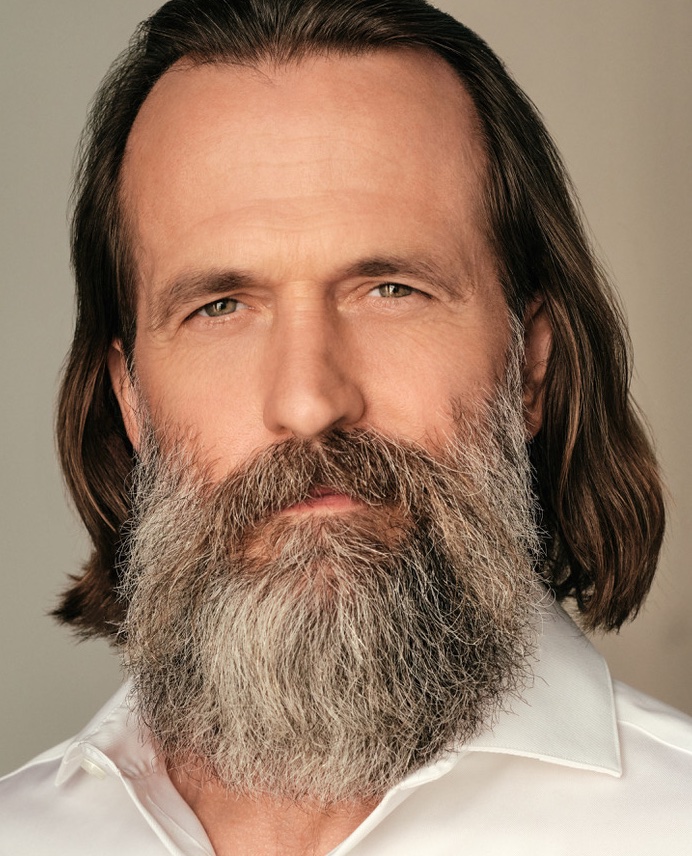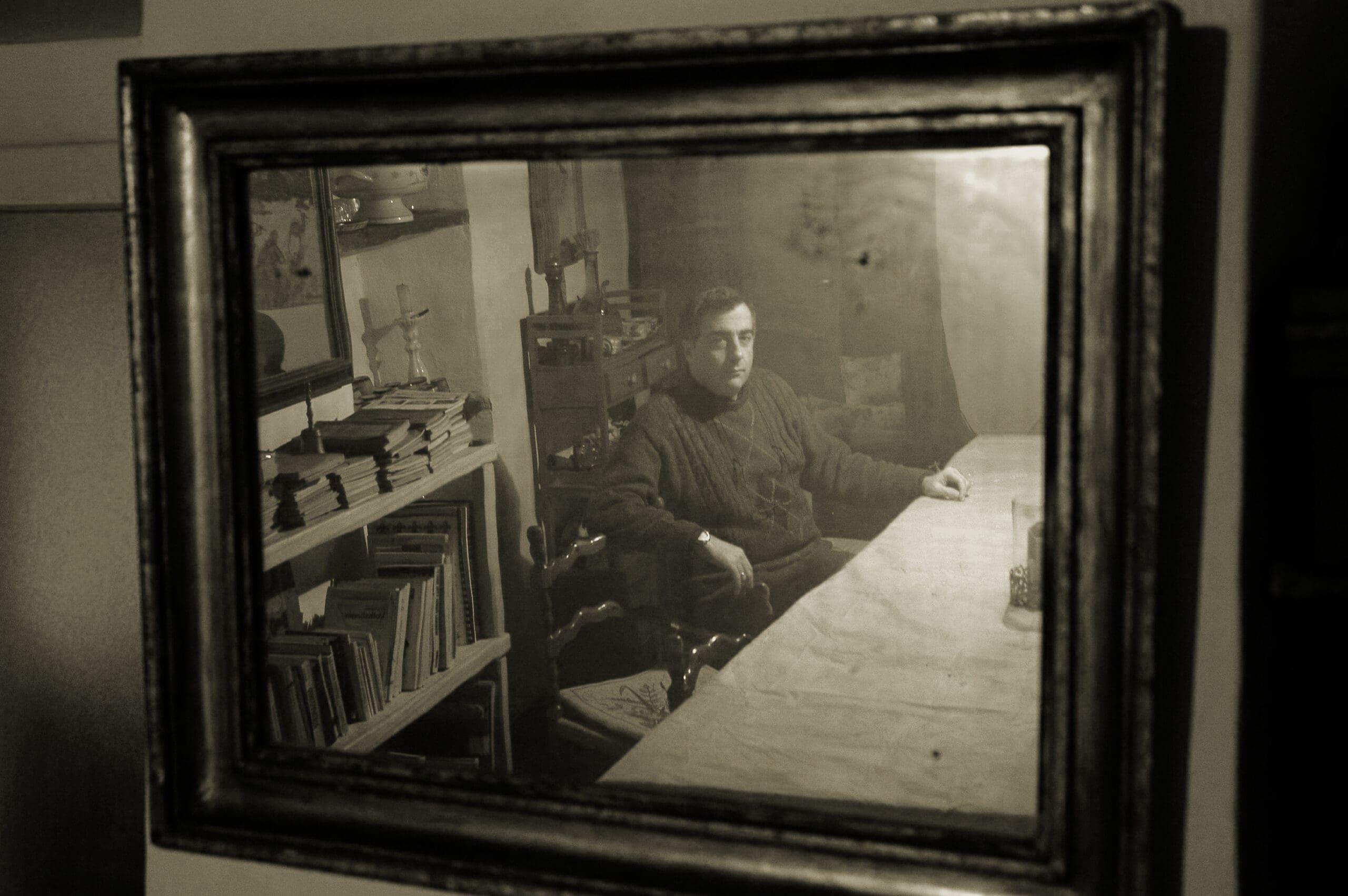From a global pandemic to the emergence of AI, change-making events have transpired since The Metaworker’s launch in 2015. However, for The Metaworker team and its pioneer writers, one consistent passion has forged its way through—a staunch love for writing. My name is Lena, a writer, artist, and Summer 2023 intern at The Metaworker. I am honored to share an interview compilation with some of The Metaworker’s first contributors, reflecting upon the past and updating us on their careers. As a Creative Writing major, interviewing four of The Metaworker’s founding writers inspires me to persevere as I embark on my writing journey. A unanimous dedication to creative self-expression is shared among the four interviewees—harmonious with The Metaworker’s unwavering commitment to passionately written, thought-provoking work. From writing advice to book recommendations, trailblazing Metaworker contributors Ronnie Clark, Jesse Swire, Ken Allan Dronsfield, and Amethyst Hethcoat shared rich insights into their creative lives.
Catching Up: Life Since The Metaworker
I asked the four writers about life since their Metaworker publication(s), learning about their vastly different experiences in both creative and personal life. As a fierce believer in creative expression as a daily staple, I was pleased to hear that the arts have prevailed among all four interviewees.
I first caught up with Ronnie Clark, a Los Angeles resident who has continued his creative pursuits on stage. “I am currently performing with The Ghost Road Company in a piece we call Super Duper,” Clark says. In true Metaworker alum fashion, Clark has been working outside the box with ‘Super Duper’: “It has been developed and written by all of us in the ensemble and is a genre-bending theatrical installation that examines our perceived connections to one another in a world of information, misinformation, and disinformation.” Though he does not always practice writing in his daily life, Clark shares that “as a teacher and actor I am always consorting with words, so in that respect, I am always writing something daily.”
When I asked about Jesse Swire’s life since contributing to The Metaworker, the current Albany, New York resident remarked that life has been, “Uh interesting?” Swire contributed three pieces to this literary magazine in 2015 and 2016, “Vienna Night 3: Brazilian Exchange Students,” “They,” and “The Mountain Where Our Bones Showed Through,” and continues to write seven years later. Swire says he’s “gotten serious about writing” recently after sitting on a book idea for a decade. The book centers around a grim yet important theme: “Vaguely, it’s a deep-dive analysis of the impact of 9/11 and the wars in Afghanistan, Iraq, and the ‘War on Terror’ on American music. It’s a criminally understudied era, and doing primary research has been the highlight of my past several years. No publication date as of yet, but stay tuned!”
Oklahoma resident Ken Allan Dronsfield has continued his writerly pursuits since being published by The Metaworker. “I’ve now published several poetry collections from a host of Publishers,” says Dronsfield. “My last book was published by Arizona Press and is titled, Aequilateralis, Aphorisms of the Water-Bourne available through Amazon in February 2023.” Dronsfield first submitted his writing (a piece called “Shimmers of Time“) to The Metaworker in 2016: “I was trying to put some of my work out there just prior to publishing my first book, The Cellaring.”
Amethyst Hethcoat, a Chapman alumnus, has been active in the writing world since her Metaworker publication. “Since Metaworker, I’ve published my short stories “Special Friend” and “Mr. Funnybone” in Z Publishing House‘s California’s Emerging Writers Series,” Hethcoat tells me. Hethcoat has writing available on Amazon: “Since graduating [college], I’ve self-published a book of my illustrated short stories Balls & Synthetic Cheese, which is available for purchase on Amazon. I continue to write in my free time and am excited to create and share more work!.”
Looking Back: Reflections on The Metaworker Publications
As someone initially drawn to The Metaworker’s passion for trailblazing, unexpected work, I was curious to learn what inspired the four interviewees to write and submit their pieces. While the answers are diverse, I found a common theme among the writers—authentic storytelling drawn from life experiences.
Ronnie Clark’s chilling, visually–rich Metaworker piece “The Lunch Bucket Game” merges writing with his love of theater: “It is [a] first-person account of genre fiction written in a writing lab with my mentor, Craig Belknap. It was inspired by a factory worker character I developed as an actor.” Clark’s piece found a home at The Metaworker after current editor-in-chief Elena L. Perez encouraged him to submit.
For Ken Allan Dronsfield, submitting to The Metaworker came “prior to publishing my first book, The Cellaring. I submitted work regularly since the journal puts out Calls for Submissions. The first published submission was ‘Shimmers of Time’ in May 2016.”
Jesse Swire also came across The Metaworker through classmate and former editor-in-chief Matthew Maichen: ” He and some other alums started Metaworker, and he encouraged me to submit. Shout-out to him for that and for teaching public vulnerability by example.” Swire shared some insight into his rhythmic, visceral poetry: his work is often taken directly from life. “Vienna Night 3: Brazilian Exchange Students“, for instance, was written after he was hit by a car, finding refuge in words during a post-accident trip to Munich: “This poem is in a notebook I kept during those three months in Europe and Israel, and it’s exactly what it sounds like. I was post-concussive and solo, making magical, brief connections with broken language and body talk,” says Swire, “Being in lingual isolation forced other senses to the fore.” “They” is also strikingly vulnerable, a piece he wrote during an AA meeting after a breakup with a nonbinary person. “How to navigate this intimate space/the gravity of/my word choice/clear on your face/we lie naked, our skins interlaced/and melt any presumptions/all give + no take,” the poem states with a dreamlike fluidity. Swire regrets the piece being on the internet, however, remarking that “It’s a poetic description of a dream they told me one morning where I was the femme and they were the masc, and the lines ‘and you wanted me/ just to be seen with you’ is 100% in order to rhyme and finish out an idea, and 0% reality. Definitely an example of the potential for immortalized assholishness for the sake of a rhyme.”
Hethcoat, another classmate of former editor-in-chief Matthew Maichen, had work published by The Metaworker after being in Maichen’s writing group. “In 2015, The Metaworker published my short story ‘Catfish,’ which, as you can probably guess, is inspired by the modern cultural phenomenon of people trapping online dates under false pretenses,” says Hethcoat. Her story seeks to spread awareness: “The piece is ultimately a satirical take on the unrealistic and harmful beauty standards society foists upon us all and the façade we feel we must uphold to survive. In that journey to find acceptance, we must not sacrifice our internal compass–otherwise, we all are just catfishes fooling ourselves along with others.” In opposition to the faux-curation that can occur in internet spheres, Hethcoat views the piece as “a warning” against self-commodification online. “The sarcastic and unlikeable narrator recounts her painful days as a bullied youth and how after years of physical reform she is now the ‘after’ image,” says Hethcoat. “This all leads up to her first in-person date with an online love interest who does not match her expectation.” Readers can reconsider their internalized biases and unrealistic standards imposed by internet culture through this lens.
Forging Forward: Writerly Advice and Musings
Maintaining a writer’s life can be difficult, especially in the hustle and bustle of daily life. Writer’s block is one infamous setback among creatives—writers often devise personal routines/ remedies to re-spark. As a writer, I was interested in learning some tips and tricks for tackling creative burnout. “Stop writing what’s blocking you, and write something else” is Clark’s antidote. He finds that revisiting a blocked project becomes more accessible after stepping away. For Swire, closing his eyes is a practical approach: “A blank page is only full of emptiness if you’re staring at it. I literally turn off my monitor, it works every single damn time.” Swire views writing as something physical, something that engages different senses. “If I’m writing poetry in a notebook, I focus on how the words would chew in my mouth, how the throat would manipulate, how the breath would push,” he says. While Swire finds shutting off his eyes effective, Dronsfield feels the opposite. In terms of sparking his creative mind, Dronsfield likes to view artwork: “Photographs, paintings, drawings. I find inspiration there and can write again.” Along with his love for artistic visual aids, Dronsfield emphasized the importance of natural, calming pastimes to spark one’s creativity: “My best time is when I’m relaxing and sitting in the back yard watching nature.”
Hethcoat finds a fear of failure a setback when writing: “Starting, I think, is the hardest part and then committing to following through. You have to incorporate a certain amount of time daily to your craft without distraction. You have to accept that there will be dirt on the way to a diamond and move beyond the cringe so you can polish your product. It takes time, review, and editing–but most of all, perseverance. Easier said than done, I know!” However, beyond the blank page, Hethcoat still incorporates storytelling into her everyday life, saying that she also enjoys singing and acting. “Every play or song is essentially a story, so I approach characters on the stage how I would books. I think of their motives, past, dreams and let these factors guide my interpretation,” she says. Hethcoat provided some sage-like advice about why one should write: “At the end of the day, write for yourself—not to impress anybody else. If your story speaks to you and you can stand behind it, that’s what matters.” She continued, “Others might tell you that stories are products that need to be manufactured and sold—but I really think it’s about exploring yourself and speaking to others from the heart. Idealistic, maybe? But who are artists if not idealists?”
When writer’s block is defeated, advancing one’s work can be a very personal, often complicated, process. Swire’s writing process embodies an iconic phrase, used by both non-profits and RuPaul alike: Reading is FUNdamental. “I read something new every single day, whether it’s news or dumb internet dumbness or something with more social currency like Boccaccio or a history book,” says Swire. “Writing is bajillions less scary when I remind myself that everything I’ve ever read started out in someone else’s head or mouth.”
A-la Swire’s literature-motivated process, I asked the writers for book recommendations to keep the creative brain active. Swire recommends the work of China Mieville (specifically The Scar), N. K. Jemisin’s Broken Earth trilogy, and Lizzy Goodman’s Meet Me in the Bathroom. Goodman’s book, Swire says, is perfect for those “remotely interested in contemporary music history. Go read the PDF sheet music of your favorite song- [the book will] both de-mystify and electrify.” Clark recommends that The Metaworker readers pick up copies of Kafka on the Shore by Haruki Murakami and The Stranger by Albert Camus. Hethcoat suggests her own ‘zany,’ illustrated anthology, “Balls & Synthetic Cheese,” or “If you are interested in art, history, and the Golden Age of Hollywood, I encourage you to check out my late mother Dr. Mary Ruggiero’s book “Roger Etienne: Journey In Search of An Artist.”
As someone relatively new to the writing world, I also wanted to hear submission advice from the magazine’s pioneer alums. The Metaworker encourages new and experienced writers to submit their work, even if they aren’t self-confident about a piece, which I find refreshing. The magazine’s “About” page has a sentence I adore: “Send us your quirky, unconventional work, the stuff you don’t think will get published but that you love too much to let it stay buried in a folder on your laptop.” At The Metaworker, no ego pedestals or “high-horses” are present among the editorial staff— just an honest, dedicated love for excellent writing. Regarding being on the submitter’s end, Hethcoat is on the same page. She believes that “Egos need to be checked at the door once you’ve thoroughly edited and spawned something of which you can be proud. You have to be willing to hear the word ‘no’ and continue to throw your hat in many proverbial rings, knowing that it will stick eventually. Persistence is key.” Clark believes it’s important to “Keep your writing voice well-lubricated and share it with anyone you can.” Dronsfield points out that polished grammar is an integral part of a successful submission: “Send in your best and make sure it’s ‘publish ready’….no spelling errors, etc.”. Swire looks to singers for wisdom: “In the immortal words of the prophetess Aaliyah, ‘If at first you don’t succeed/Then dust yourself off and try again/ you can dust it off and try again, try again.” As writers continue to tell stories amid a frenzied world, dusting off their work and trying again and again, The Metaworker forges forward.

Lena Bramsen is a lifelong New Yorker and Creative Writing major at The New School. She explores the odd and nostalgic through words, digital art, and miniature dioramas—inspired by themes such as Americana, womanhood, and the eerie grandeur of haunted houses. She’s written for publications such as 12th Street Journal, Study Breaks Magazine, and GEN-ZiNE.

Ronnie Clark is an actor/writer who was born and raised in the greater Los Angeles area and still calls it home. He works in Film and TV as an actor and works onstage with The Ghost Road Company as both an actor and writer. Ronnie received his MFA from California Institute of the Arts. Find him at www.ronnieclarkactor.com and ghostroad.org

Chapman University alumnus & Mel Watson Award for Scholarly & Creative Excellence recipient, Amethyst Hethcoat is published in Calliope, Crab Fat, the Fem, Literary Juice, Gay Flash Fiction, Metaworker, & Z Publishing House’s California’s Emerging Writers Series. SoCal native & pop culture enthusiast, Amethyst critiques society oftentimes through dark humor and tongue-in-cheek observations. Find her at Amethystfreedom.wordpress.com (blog about sexuality and gender in film.)

Hailing from all over the place, Jesse Swire has moved way too often, and is not a tree. Instead he’s the smushed tree pulp called Paper that you’re reading now. No roots firmly planted, just words. He’s currently in Albany, New York, (finally) writing a book about the impact of 9/11 and the ensuing wars on American music. At various times he’s worked in addiction medicine, care-taken for the elderly, sang clean vox in a melodic death metal band, and ignored the Rule of Three. You can find him if you try hard enough, or if you email him at swire.jesse@gmail.com.

Ken Allan Dronsfield is an internationally recognized poet. He is a disabled veteran and graduate of the Community College of the Air Force. Ken is a prize winning poet originally from New Hampshire and now resides in Oklahoma, USA. He currently has seven poetry collections. Ken has been nominated for many Pushcart Prize and Best of the Net prizes, in addition, he was First Prize Winner for both the 2018 and 2019 Realistic Poetry Internationals Nature Poetry Contests; and has also won First Prize and several Second Place finishes on poetic contests from Poetry Soup. He loves writing, shooting, thunderstorms, watching the stars and spending time with family and rescue cats Willa, Yumpy and Melly.




